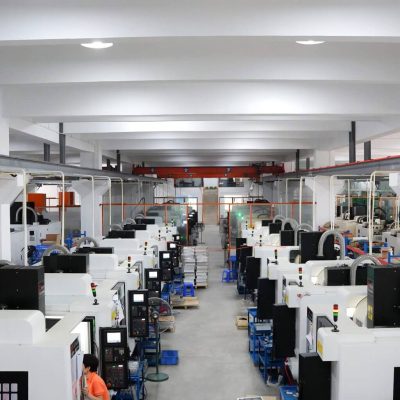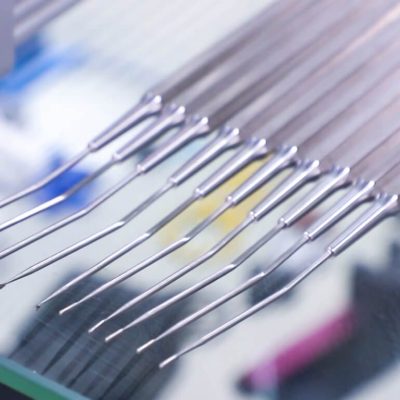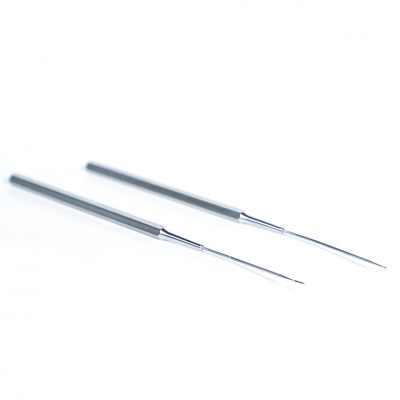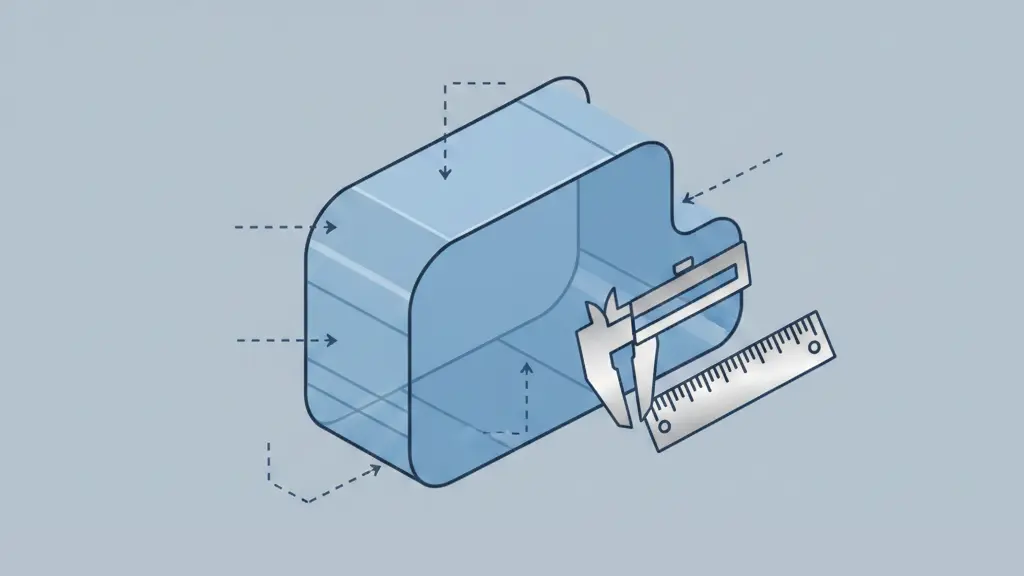The production field is a very competitive space. Firms compete to create the best product. Materials compete to be used by the best firms. Processes compete for the top spot as the best process. All these lead to a very diverse space and filled with many production methods, materials, and producers. But some still stand out from others.
One of such methods is CNC machining. It places itself as one of the most versatile methods by allowing the production of many materials. Production occurs in over three different ways, which produces an unlimited quantity of products. CNC machining has proven itself as a game-changer in production. Its usage is so broad that hardly any field is left out.
Even the medical field benefits from CNC machining. The medical field is vital to any society being able to conduct proper medical research. Or the presence of modern medical tech is vital. This helps keep people alive. In turn, helping the economy, as these people can work. So, we’ll discuss in-depth the merits of the CNC process in medicine. Let’s begin with a definition.
What is CNC Machining?
CNC machining is among the most dynamic production processes today. CNC stands for computer numerical control. It is a process that involves pre-programmed computer software. This software decides the movement of factory machines. These tools are controlled to produce top-quality products.
It is a fully automated method. That exceeds the limitations of manual production. These programs in CNC are not regular computer programs. They are uniquely designed to give efficiency to production. Note that CNC machining is the process. While the CNC machine is the programmed machine itself.
CNC process increases the precision in production. It improves efficiency in production. It is cost-effective. CNC process saves time and effort, and it allows mass production with top quality. Automobiles firms use CNC machining. Medical tools are made with this process. Even home appliances are made with CNC machines.
Types of CNC Machines
CNC process is entirely done by machines. All you do is use computer software. CAD stands for computer-aided design software. It sets the details into the machine. There’s also CAM, computer-aided manufacturing software. It puts the machine to work turning the CAD details into an actual product. There are many types of CNC machines. They serve many purposes. But the most often used ones include;
Lathes
Lathes are one of the most common CNC machines. Firms use them to produce hard designs which would not be possible with manual machines. The lathe machine cuts at a circular angle. In CNC, the G-code directs its action. However, it has both the X and Z axis. CNC lathes are cut with top precision and accuracy. The precision would be hard to get with the manual cut.
CNC Mills
There are also CNC mills. These can run on both letter and number-based commands. The basic mills have a three-axis system. The G-code directs the CNC mill. But producers can create unique command prompts.
Electric Discharge Machines
This is also known as EDM or a spark machine. It is the CNC machine that molds workpieces. It makes materials into certain shapes fit for the process. And it uses electric sparks for its shaping function.
Water Jet Cutters
There is the water jet cutter. Unlike its name denotes, it doesn’t cutwater. Instead, it uses water to cut hard materials. Water is applied to hard metals or granite. Then, cut using the water jet. The water is often mixed with sand. And it is applied at high pressure. This CNC machine is also famous in the aerospace industry and the mining space.
Uses/Products of CNC Machining for The Medical Industry
Now that you know the CNC machining process and you also know some of its machines. Let’s move back to the medical space. We will assess some medical tools created via the CNC process. These include;
Medical Implants
Producers often use CNC machines to make medical implants. The upgrade in tech allows the creation of medical implants. Implants such as spine and knee implants are examples. CNC allows the production of these implants as desired.
While injection molding produces in large numbers, CNC allows single production. And medical implants are often not needed in large numbers. CNC being ideal for many materials also makes it suitable.
Machined Surgical Tools
Medical experts use many surgical tools during the operation. These tools are of top quality. They are not allowed to be faulty. A little error can cause serious harm in surgery. So, CNC machines are used to create top-quality tools. Surgical tools that medical experts can use hassle-free. These include; forceps, surgical scissors, blade holders, clamps, etc.
Electronic Medical Instruments
CNC also produces parts for electronic medical tools. Such as x-ray machines, ultrasound tools, MRI scanners, etc.
Micro–machining
CNC process is also used to make small, precision tools. Such as tubes, stents, drug delivery systems, catheters, etc. These parts require expertise and precision to create what CNC machines provide.
Pros Of CNC Machining for Medical Devices and Products
Now, let’s move to the merits of the CNC process. For the creation of medical devices and products, there are some merits that it gives to the medical field. We know that CNC allows the production of various volumes. But what else is gained from it? The merits to medical devices include;
No Need for Tools
If you use the other option, injection molding. You would have to design a specific mold. Check its details properly. That is after looking over samples and finally approving one. All this stress for a one-off production isn’t worth it. Or medical tools which you often need haste. This long process won’t work.
CNC process makes production fast and easy. No need for physical molds. Let the machine create your medical tool for you, and in record time too.
Versatility of Materials
Medical tools often use a wide variety of parts. Aluminum, stainless steel, titanium, mild steel, PEEK, and so on. Not all production process supports these materials. But with a few exceptions, CNC is open to many materials. So, it can easily produce medical tools with no stress. No matter the material used.
Any Volume Can Be Made
With medical tools, you only need one or a few numbers. This makes it hard to use other methods. As most of them have a minimum order. But with CNC, you can create even just one tool. Once you program the CAD files and push a button. Only one or more, you get the desired medical tool.
Fast Production
CNC also allows fast production of medical tools. This is vital as again to the medical space. Because in the medicals emergencies are common. So, you don’t know when you might need a tool. But with CNC, moving from CAD to the final item takes a few hours. This depends on the nature of the parts. So, CNC is very helpful in ER cases.
Tight Tolerance
Precision is the key to medical tools. These tools need very tight tolerance. So, CNC machines can make it. The final design from CNC machines is top-class, and it saves cost and time. Also, medical devices use exact details. That you must follow clearly. This is hard to the manual process but easy for the CNC machine.
Portable Machines
Most field tools are often large. But some cases call for small, portable items. And CNC machines offer this. Some CNC machines are small and portable. Although this limits their powers, it is helpful in an ER case or in a small medical unit without a big facility.
Flexible CAD File
CNC programs are controlled by CAD. These are very flexible, allowing easy transfer of files. So you can move files from one machine to another. You can also adjust programs with ease. With simple skills, you can learn to operate CNC machines. And master its CAD software.
Conclusion
In summary, the CNC process might be costly but one with many merits to the medical field. In a world where health is crucial, there is a thin line between life and death. Medical cases are thus treated with care and haste of duty. So, any production process that doesn’t reflect this can’t work.
So, the CNC production process as you have seen fits. It produces quality items and focuses on details. It doesn’t require heavy manpower. Thus, you do not need to bother other medical staff. It saves time with fast production. It is ideal for hard parts used in medical tools. It even allows the one-off production of knee implants. CNC is a good process for the medical space. A pairing that will only improve as tech upgrade continues.
If you want CNC machining service for your next medical tool, then check out RJC, a trusted CNC supplier. We have global expertise and clients.







